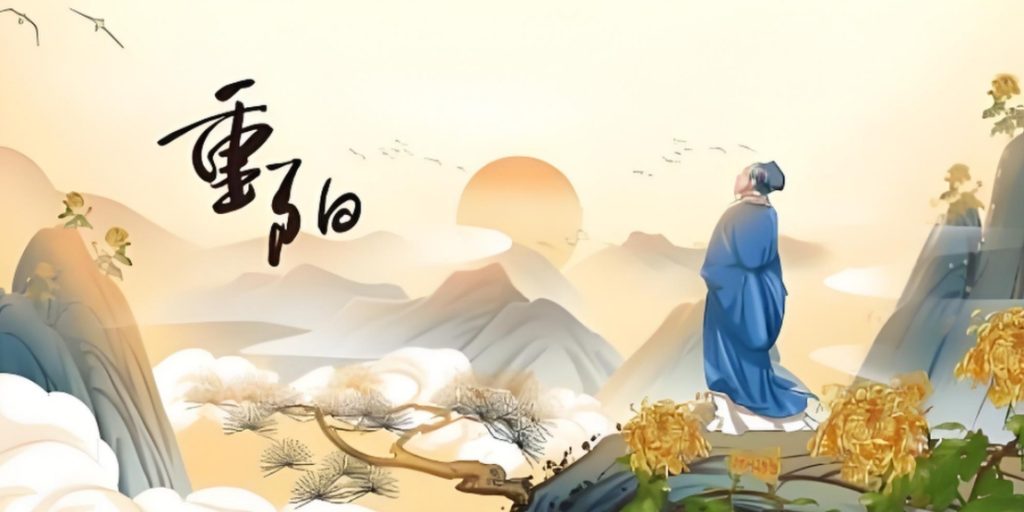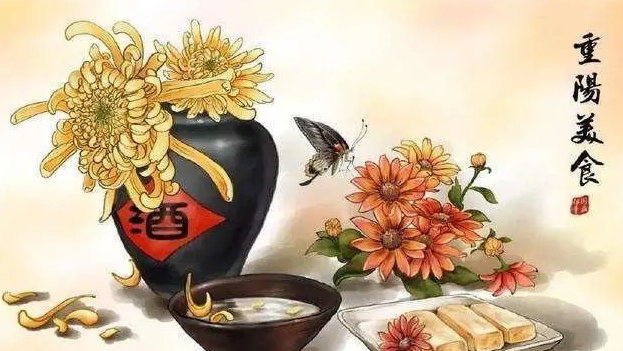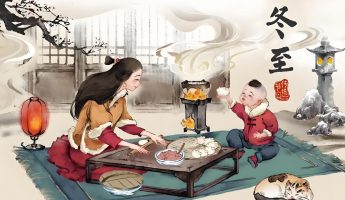The ninth day of the ninth lunar month is a traditional Chinese festival – Double Ninth Festival, also known as “Elderly Day”. According to the Book of Changes, six represents the yin number, while nine represents the yang number. Therefore, September 9th is considered the day with the strongest yang energy and is called Double Ninth or Double Ninth. The ancients believed that this was an auspicious day worth celebrating, and began celebrating this festival a long time ago.
The Double Ninth Festival symbolizes longevity and longevity because it sounds the same as “Jiujiu” and the number nine is the largest. In addition, autumn is the season of harvest, and the significance of Double Ninth Festival is even more profound. People have always had special emotions towards this festival. There are many poems in Tang and Song poetry that are gifted to the Double Ninth Festival and excellent works that sing chrysanthemums. The current Double Ninth Festival has taken on a new meaning.
After more than two thousand years of evolution, Double Ninth Festival has become a diverse festival with rich and colorful customs. During the festival, various activities are carried out by the people, such as climbing high, worshipping ancestors, wearing dogwood, inserting chrysanthemums, admiring chrysanthemums, drinking chrysanthemum wine, flying kites, and eating Chongyang cake to promote the tradition of respecting and honoring the elderly.

Climbing high and worshiping ancestors
One of the most important activities during the Double Ninth Festival is climbing, hence it is also known as the “Climbing Festival”. The custom of climbing high has three main sources: firstly, legends about avoiding disasters; Secondly, it originated from the ancient worship of mountains; Finally, when all things wither in autumn, climbing high to “say goodbye to the green” is opposite to the “spring outing”. The location for climbing is not clearly defined, and generally high mountains or towers are chosen. In the golden autumn season, the weather is clear and very suitable for climbing high and looking far away. It not only makes people feel relaxed and happy, but also achieves the effect of fitness and disease elimination.
Insert Cornus and Chrysanthemum
The custom of inserting dogwood during the Double Ninth Festival was widely popular in the Tang Dynasty. The ancients believed that inserting dogwood on the Double Ninth Festival could ward off evil and dispel disasters; Some people wear it on their arms, while others carry it with them in sachets, and some even put it on their heads. Most wearers are women and children, but in some areas, men may also wear dogwood.
Appreciating chrysanthemums
The Double Ninth Festival is the golden autumn season, when chrysanthemums compete to bloom. Legend has it that the custom of appreciating chrysanthemums and drinking chrysanthemum wine originated from the great poet Tao Yuanming of the Jin Dynasty. He is famous for his seclusion, poetry, drinking, and love for chrysanthemums. Later generations followed his example and formed the tradition of appreciating chrysanthemums during the Double Ninth Festival. Ancient literati and scholars often combined chrysanthemum appreciation with banquets to express their longing for Tao Yuanming. During the Northern Song Dynasty, the Chongyang chrysanthemum appreciation activity in Kaifeng, the capital city, was very popular. There were many varieties of chrysanthemums with their own characteristics. Folk people also refer to the ninth month of the lunar calendar as the “Chrysanthemum Moon”. Therefore, during the Double Ninth Festival when chrysanthemums are in full bloom, appreciating chrysanthemums has become an important activity of the festival. After the Qing Dynasty, the custom of appreciating chrysanthemums became more prosperous, not limited to September 9th, but still reaching its peak around the Double Ninth Festival.

Fly kites
In the ninth lunar month, the monsoon in the south begins to strengthen, and the wind is just right, which is very suitable for flying kites. Therefore, people gradually formed the tradition of flying kites on the Double Ninth Festival. Legend has it that the purpose of flying kites on Double Ninth Festival is to “release bad luck”. The higher the kite flies, the farther away the bad luck will be. Some people even intentionally cut the string to make the kite disappear above the clouds. On the other hand, there is also a saying that flying kites on Double Ninth Festival is to “bring good luck” and “good fortune”. The better the kite flies, the more blessings there will be. People who fly kites not only need to be careful not to break the string, but also find ways to protect its integrity. If the string breaks, good luck and blessings will also disappear.
Chongyang Cake
Chongyang cake is a traditional food of Chongyang Festival, also known as “flower cake”, “chrysanthemum cake” or “five color cake”. On the morning of the ninth day of the ninth lunar month, people would place a piece of cake on their children’s foreheads and recite some blessings, hoping that their careers and lives would rise step by step. This is exactly the original intention of making pastries in ancient times. The exquisite Double Ninth Festival cake is usually made into nine layers, resembling a pagoda, and the top is also made into two small lambs to conform to the symbolic meaning of Double Ninth Festival (sheep). Sometimes people also put a small red paper flag on the Double Ninth Festival cake and light candles, symbolizing the meaning of “climbing high”.
Respect and honor the elderly
Nine “is the largest number in numbers, symbolizing longevity and permanence, hence it has a similar sound to” long “. The Double Ninth Festival contains wishes for longevity and nobility. In 1989, China designated the ninth day of the ninth lunar month as the Senior Citizens’ Day, cleverly integrating traditional culture with modern life, making this festival a new type of festival that respects and cares for the elderly. The typical customs of respecting the elderly during the Double Ninth Festival include the Chongyang customs in Huangcheng Village, Shanxi and Shangcai, Henan, which have been included in the national intangible cultural heritage list. On the ninth day of the ninth lunar month, Yangcheng County in Shanxi Province, with Huangcheng Village as the center, carried out a variety of “elderly care, respect for the elderly, love for the elderly, and assistance” activities in all towns and villages in the county, as well as relevant villages and towns in Qinshui and Zezhou.



